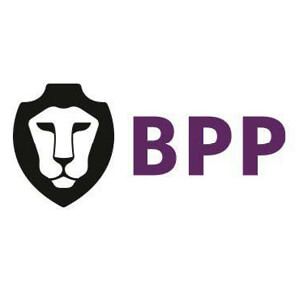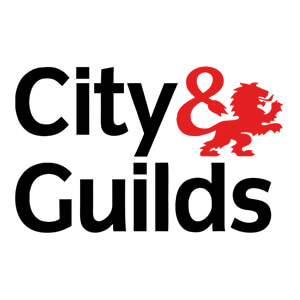Course Length
Intakes
Online Course 1st Monday of every month
Globally Recognised
Global Certification
€650.00 (Pre Recorded Class)
€0.00 (Online Live Class)






Overview
Effective Management of Human Resources
It is essential that all the organisations invest in the human resources organisations to identify the value that human resources can add by taking an informed look at what is going on in the workplace.
The association of human resource management along with strategic goals have helped organisations to achieve extraordinary targets. Human resources managers play a vital role in formulating the workforce strategy and establishing relevant functional processes.
Creating a strong bond between the employer and the employee is mandatory for effective management of human resources. Hence, a human resources manager should have a thorough knowledge on various HR practices as well as disciplines in order to manage the workforce effectively.
Learning Outcomes:
- Improve the performance of the organisation;
- Developing strong organisational cultures;
- Encourage innovation between the employees;
- Achievement of strategic goals with ease;
- Enhance flexibility within the organisation.
Effective Team Management
Team working has proved to be a vital part of the day to day operations in every organisation. All members of a team are expected to work in harmony to achieve a common goal. Working as a team helps each individual involved to play to their strengths and make a valuable contribution to achieve the expected target/goal. Teams can be generated for two main reasons:
- To deliver a specific project together
- To work on an ongoing basis in the company
The collective energy and the knowledge they provide means teams are able to contribute more than individuals working on their own. Teamwork can be considered to be an integral part of any organisation. Hence, it is important that individuals are able to become effective team players within the organisation they work for.
Individuals join groups for many reasons such as for future aspirations, recognition, fear, power and to improve performance. Groups are divided mainly in to two types, informal and formal. A group of people operating together with individual objectivesin mind isrecognized as an informal group. A group of people which operates with a common goal or objective isidentified as a formal group.
Learning Outcomes:
- Main areas teams operate in an organisational context
- Stages of group/team development
- Effective team players and teams
- Characteristics of an effective team
- General dysfunctions of groups and teams
Improving Communication Skills
Organisational relationships are essential to organisational success. Therefore, understanding the nature of management, different perspectives of management and management of relationships would enhance the overall ability to manage organisations.
Effective communication plays a vital role in this whole process. Communication is an important aspect in the relationship between managers and their subordinates. Most organisations, in the current context, depend on the following two factors:
- Speed of information
- Accuracy of information
Information with the above two qualities will guide any individual to make effective decision in an organisation.
The theory discussed in this app will help individuals such as senior managers, management accountants, accounts executives and anyone requiring a thorough knowledge on the communication process and various methods of communication.
Learning Outcomes:
- Communication media
- The communication process
- Nonverbal communication
- Interpersonal communication
- Non Violent Communication (NVC)
Change Management
Change management is essential to ensure the effective implementation of an organisational strategy. Strategy is defined as the ways and means of achieving long-term objectives of a company. Implementing such long term objectives will require considerable change in the organisation.
Organisational change cannot be achieved in a day. It is a process, which has to be managed over time. Hence, effective change management is essential to accomplish the expected objectives.
Change management entails thoughtful planning and sensitive implementation, and above all, consultation with, and involvement of the people affected by change. If you force change on people, problems normally arise. Change must be realistic, achievable and measurable. Change can be only introduced with sound communication, training and development.
Careful attention should be paid to factors that resist change, organisational culture, factors that trigger change and the type of change to be introduced in order to bring change effectively. When an organisation plans for change, it is important to be cautious, as change can be potentially risky.
When an organisation focuses on the manner it operates and tries to introduce change, it can disturb its day-to-day operations. Thus, it can even harm the core organisational functions. Hence, it is vital to plan and implement the change process effectively to ensure that the organisation is not disturbed by the process implemented to introduce change.
Learning Outcomes:
- Organisational development and change
- Reasons for organisational change
- Types of change
- Approaches to manage change
- Techniques to manage resistance to change
Strategic Planning and Development
As strategy gives scope and direction to an organisation, it is important to know about how a strategy is formulated. Hence, it is important to understand the factors that should be considered in creating an effective strategy.
Strategy is defined as the ways and means of achieving long-term objectives of a company. It is important to choose the most suitable strategy to achieve the expected objectives. However, to achieve the expected outcomes, it is vital to ensure that the strategy is successfully implemented.
Learning Outcomes:
- Approaches to strategy planning
- Internal and external environmental analysis
- Strategic option generation
- Strategic option evaluation
- Strategy implementation, monitoring and control
Information Systems in Business
Information systems have become a vital requirement for almost every organisation today. Adequate management of information and ensuring the availability of such information in an accurate manner in the correct time is of great importance.
Information is processed data. It is important to deliver quality information on time in order to satisfy the urge for information in organisations. Nowadays, most businesses greatly rely on information systems to deliver quality information in a timely manner.
In modern organisations, Information Technology (IT) and Information Systems (IS) are of increased importance to the management have a close relationship.
When an organisation develops information strategies, it will enable it to determine its information requirements and then to decide on appropriate types of information. This will ensure that the required information are collected and maintained. It is said that the organisations have been transformed through technology but have also faced problems with regard to information systems.
Learning Outcomes:
- Information and types of information systems
- Information system development
- Management of information system activities
- Information systems and organisations
- Controls in the information technology environment
Project Management
Project management helps organisations manage their time and resources effectively to achieve set objectives. It plays a major role in effective planning and the execution of organisational strategies.
Learning Outcomes:
- Nature of projects
- Project management frameworks
- Project managers, stakeholders, meetings and structure
- Project stages – Initiation
- Project stages – Project planning
- Project stages – Project control
Reviews

ACCA F1/FBT – Business and Technology

Financial Accounting (FA) - formerly F3

Certificate in Business

Management Accounting (MA) - formerly F2

Corporate and Business Law (LW) – formerly F4

Advanced Taxation (ATX) - formerly P6